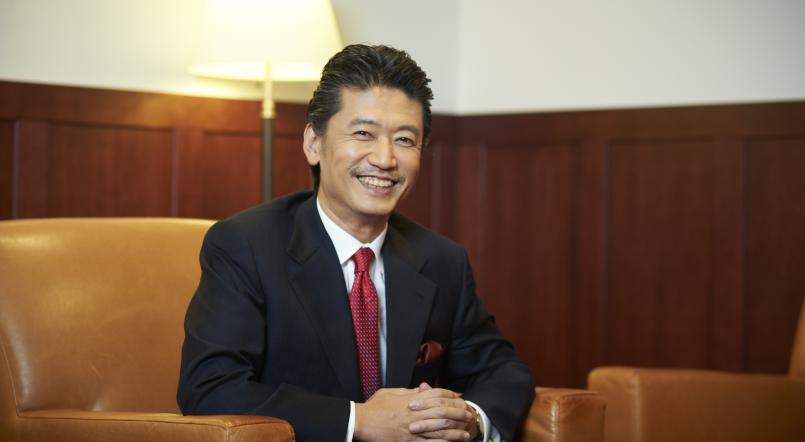Naomi was in a dilemma. She was due to give birth to her first child, and was keen to take a year off from work in order to devote exclusive attention to her baby. Yet a year away from work would almost certainly mean losing her job – the company was growing rapidly, and key positions could not be left empty for an entire year.
Naomi was a high potential, and had always been highly rated by her supervisors and peers. Yet, like many women before her, it seemed she was now at a crossroads, having to make a choice between career and motherhood.
Asia’s Gender Gap
All across Japan and Asia, female professionals are facing similar dilemmas. Females continue to be regarded as the primary caregiver and keeper of the household in these societies, so it is often challenging for working mothers to balance career aspirations and family responsibilities. It is no surprise that the World Economic Forum’s Global Gender Gap Index 2013, which measures gender gaps in economic and social empowerment among others, ranked only one Asian country – Philippines –in its top thirty. Japan was ranked 105th.
Asking the Right Question
Why should female workers who are as talented as their male counterparts be deprived the opportunity to pursue their career aspirations?
This was exactly the question Masayuki Makino asked himself eighteen years ago. In our interview with him, Makino-san shared that “during entry interviews at my company, the ratio of male to female fresh grads is always about 50:50. Many female employees also demonstrate a greater hunger and drive at work compared to their male counterparts.” Yet, line managers often choose to focus on developing male employees. It was too risky to afford opportunities to the female who might resign or take an extended break once she gets married or gives birth.
Makino-san is CEO of Works Applications, an Enterprise Resource Planning (ERP) provider. The measures he put in place whilst trying to address the above question has helped his company strengthen its diversity and business results. In addition to being the market leader in Japan and Asia, Works Applications also consistently ranks in the top five of the Best Companies to Work For in Japan list alongside the likes of Microsoft and Google.

Engaging the Right People
Flexible working hours. Generous paid maternity leave. Up to forty-two months of unpaid maternity leave with a guaranteed return to a position at the same level. On top of all that, a one-time monetary reward of 15% of annual income for returning mothers as appreciation for their commitment to the company.
This set of maternity benefits at Works Applications sounds like a dream come true for potential and current mothers but that was precisely what Makino-san set out to achieve when he asked his female employees to “tell (him) what they would need in order to continue working with the company whilst juggling motherhood”. Whilst designing the suite of maternity benefits, the CEO made sure to test the ideas with his employees who were mothers and mothers-to-be. After all, Makino-san reasoned, these females know better than anyone else what they need in order to juggle dual roles.
A case in point might be the one-time monetary reward for returning mothers. Makino-san shares that many female employees have used it to garner support from their families about their desire to return to the workforce. Only Japanese mothers who have been through similar difficulties would understand the usefulness of such a bargaining chip – they already had a strong desire to return to the workforce, but in collectivistic cultures like Japan’s, communal support was imperative.
Doing the Right Thing
These policies have reaped significant benefits in both business and people sense. Although some might question the financial logic in offering such generous benefits, Makino-san did the sums for us, “a female high performer usually spends 5-7 years with us before becoming a mother. The cost of replacing an employee is substantial. Furthermore, there is always a risk that the replacement does not perform. Why not invest just a fraction of that money into ensuring your female employee returns? At lower cost, you retain a proven performer who will come back thankful and committed.”
The cost of replacing an employee is substantial... Why not invest just a fraction of that money into ensuring your female employee returns?
Business results do not lie – Works Applications offer ERP services at one-third the total cost of their competitors and is a clear market leader in their target market: large Japanese corporations. Their compensation and benefits, even outside of these maternity perks, are extremely competitive.
Although he saw the business case, Makino-san shared that his initial motives for these people practices was “just about doing the right thing.” Talent must be treated equal, he asserted, and if society and other businesses would not do it, then he had to.
What started off as doing the right thing eventually paid off in the right way for Works Applications. It could work out similarly for other Asian organisations, if only they would start off by asking themselves the right question too.
Naomi continues to be employed at Works Applications, and has recently been promoted to Head of Consulting due to her outstanding performance. She has balanced her childrearing duties admirably, and talks appreciatively of the understanding and support her husband and relatives have given to her.
Why should female workers who are as talented as their male counterparts be deprived the opportunity to pursue their career aspirations?



There is 1 Comment